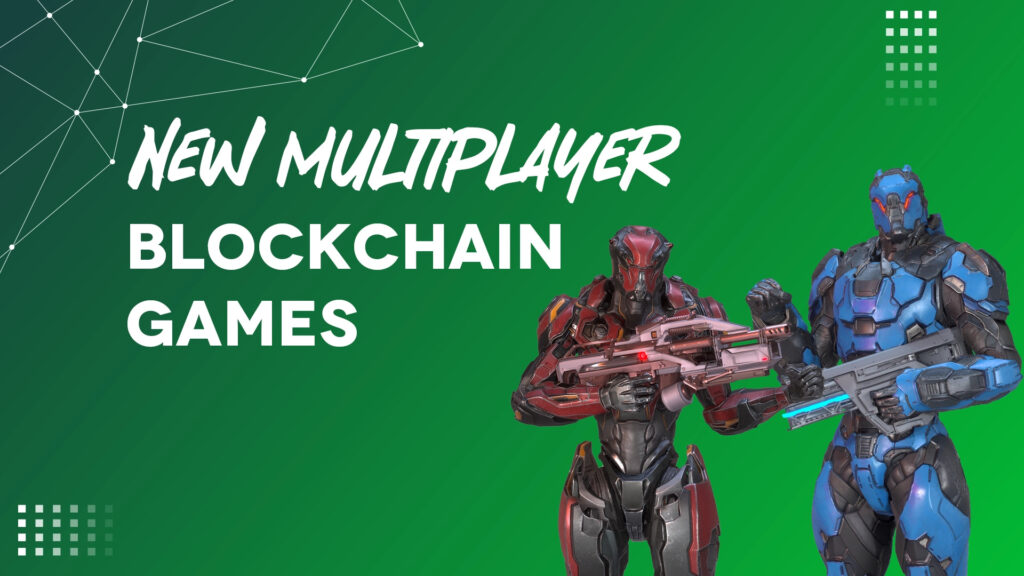Why Modern Games Are Being Made On The Blockchain Platform!

In recent years, the gaming industry has experienced a seismic shift with the advent of blockchain technology. As one of the most transformative innovations of the 21st century, blockchain has permeated various sectors, and the gaming world is no exception with top blockchain games. A growing number of modern games are being built on blockchain platforms, offering unprecedented benefits to developers and players alike.
True Ownership and Asset Security
One of the primary reasons why modern games are turning to blockchain is the concept of true ownership. In traditional games, players spend countless hours acquiring in-game assets such as weapons, skins, characters, or currency, but those assets are typically controlled by the game developer. Players do not truly “own” the digital assets they collect, and their value can vanish if the game company decides to shut down the servers or alter the game. Blockchain games offer a solution to this problem by allowing players to truly own their in-game assets through non-fungible tokens (NFTs). NFTs are unique, blockchain-based digital tokens that represent ownership of a specific asset.
Decentralized Economies
Another reason blockchain is increasingly being used in gaming is its ability to facilitate decentralized economies. In traditional gaming ecosystems, the flow of in-game currency and assets is centrally controlled by the game developers. Players can buy items, but they have little control over the game’s economy. With blockchain, in-game currencies and assets are decentralized, giving players the ability to participate in a thriving marketplace. Blockchain games enable a peer-to-peer economy, where players can trade, buy, and sell items directly with each other, without needing a middleman. This decentralization ensures that the value of in-game assets is determined by the market itself, driven by supply and demand.
Transparency and Fair Play
Blockchain technology is inherently transparent and secure, providing an ideal platform for building trust in gaming ecosystems. One of the major challenges in traditional gaming is the lack of transparency in how developers manage their games. For instance, players may not be fully aware of how game mechanics are balanced, how rewards are distributed, or whether some players have unfair advantages. By utilizing blockchain, game developers can ensure transparency and fairness. The decentralized nature of blockchain means that every transaction or change within the game is recorded on an immutable ledger.
Interoperability and Cross-Game Potential
One of the most exciting possibilities that blockchain offers to gaming is interoperability. In traditional games, in-game assets are usually restricted to that specific game. If a player invests in a rare sword or character skin, it can only be used within that game’s ecosystem. However, with blockchain, assets can be transferred between games or even across different platforms, creating a new level of interaction between gaming ecosystems. Interoperability allows players to take their items, currencies, or characters from one game to another, provided those games are built on the same blockchain. For example, an NFT purchased in one game could be used in another game that supports the same blockchain, adding a layer of personalization and continuity to the player’s experience.
Empowering Developers and Reducing Costs
Blockchain technology doesn’t just benefit players—it also offers advantages for game developers. Developing traditional games often involves hefty fees for servers, maintenance, and middlemen like payment processors or app stores. Blockchain’s decentralized structure can help reduce these costs by cutting out the middlemen and providing a more efficient way to manage in-game economies. Furthermore, blockchain allows developers to create new revenue models. For instance, developers can earn royalties from secondary sales of NFTs, ensuring that they continue to benefit even after an item has been sold between players.
Summing up, the rise of blockchain technology in gaming is reshaping the industry in profound ways with the top blockchain games. From offering true ownership of digital assets to creating decentralized economies, enhancing transparency, and empowering developers, blockchain is unlocking new possibilities for both players and game makers.


